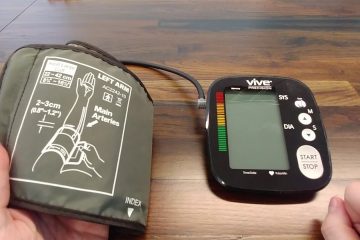Customized Solutions: Sleep Apnea Appliances Tailored to Your Needs

Sleep apnea is a common sleep disorder characterized by repeated pauses in breathing during sleep. These can occur several times during sleep and can have a significant impact on quality of life. The Great Neck dentist helps treat patients with sleep apnea using the appropriate dental appliances for an improved quality of life.
In this article, we will delve into the types of sleep apnea appliances and how they work to improve oral health and wellness.
What are the types of sleep apnea?
There are three main types of sleep apnea:
Obstructive sleep apnea (OSA): This is the most common type, accounting for 80-90% of sleep apnea cases. It occurs when the airway is physically blocked, typically by the tongue or soft palate, causing pauses in breathing.
Central sleep apnea (CSA): This type is less common, affecting 10-20% of sleep apnea patients. It occurs when the brain fails to send proper signals to the muscles that control breathing, resulting in pauses in breathing.
Mixed sleep apnea: As the name suggests, this type is a combination of OSA and CSA. It is relatively rare, accounting for less than 10% of sleep apnea cases.
What are the benefits offered by sleep apnea appliances?
Sleep apnea appliances offer several benefits, including:
Improved sleep quality: By keeping the airway open, sleep apnea appliances help reduce pauses in breathing, snoring, and disruptions during sleep.
Increased oxygen levels: By ensuring uninterrupted breathing, sleep apnea appliances help maintain healthy oxygen levels during sleep.
Enhanced daytime functioning: Treating sleep apnea with oral appliances can improve alertness, focus, and overall daytime functioning.
Reduced risk of related health issues: Sleep apnea treatment can lower the risk of developing conditions like hypertension, diabetes, and cardiovascular disease.
Non-invasive and non-surgical: Sleep apnea appliances are a non-invasive and non-surgical treatment option, making them a more comfortable choice for many patients.
Portable and convenient: Many sleep apnea appliances are portable and easy to use, making treatment accessible anywhere.
Customizable: Oral appliances can be tailored to fit individual needs and preferences.
Improved overall health: By treating sleep apnea, oral appliances can contribute to overall health and well-being.
Reduced snoring: Sleep apnea appliances can significantly reduce snoring, improving sleep quality for both patients and their partners.
Alternative to CPAP: Oral appliances offer a comfortable alternative for patients who struggle with CPAP therapy.
How do sleep apnea appliances work?

It’s important to consult a healthcare professional or a dentist specializing in sleep apnea treatment to determine the most suitable appliance for your specific needs.
Sleep apnea appliances work by advancing the lower jaw, holding the tongue in place, or delivering air pressure to keep the airway open during sleep.
Here’s a detailed explanation:
Mandibular Advancement Devices (MADs):
- Advance the lower jaw, keeping the airway open.
- Encourage the tongue to move forward, away from the back of the throat.
Tongue-Retaining Devices (TRDs):
- Hold the tongue in place, preventing it from falling back and blocking the airway.
Adjustable Oral Appliances (AOAs):
- Advance the lower jaw and tongue, keeping the airway open.
- Allow for adjustments to be made to achieve optimal advancement.
Continuous Positive Airway Pressure (CPAP) Machines:
- Deliver a constant flow of air pressure into the airway, keeping it open.
Bi-Level Positive Airway Pressure (BiPAP) Machines:
- Deliver two different levels of air pressure: one for inhalation and a lower level for exhalation.
Adaptive Servo-Ventilation (ASV) Machines:
- Monitor breathing patterns and deliver air pressure only when needed, to help maintain a consistent breathing rhythm.
By using one of these appliances, patients with sleep apnea can help prevent pauses in breathing, reduce snoring, and improve the quality of their sleep. It’s important to consult a healthcare professional or a dentist specializing in sleep apnea treatment to determine the most suitable appliance for your specific needs.









